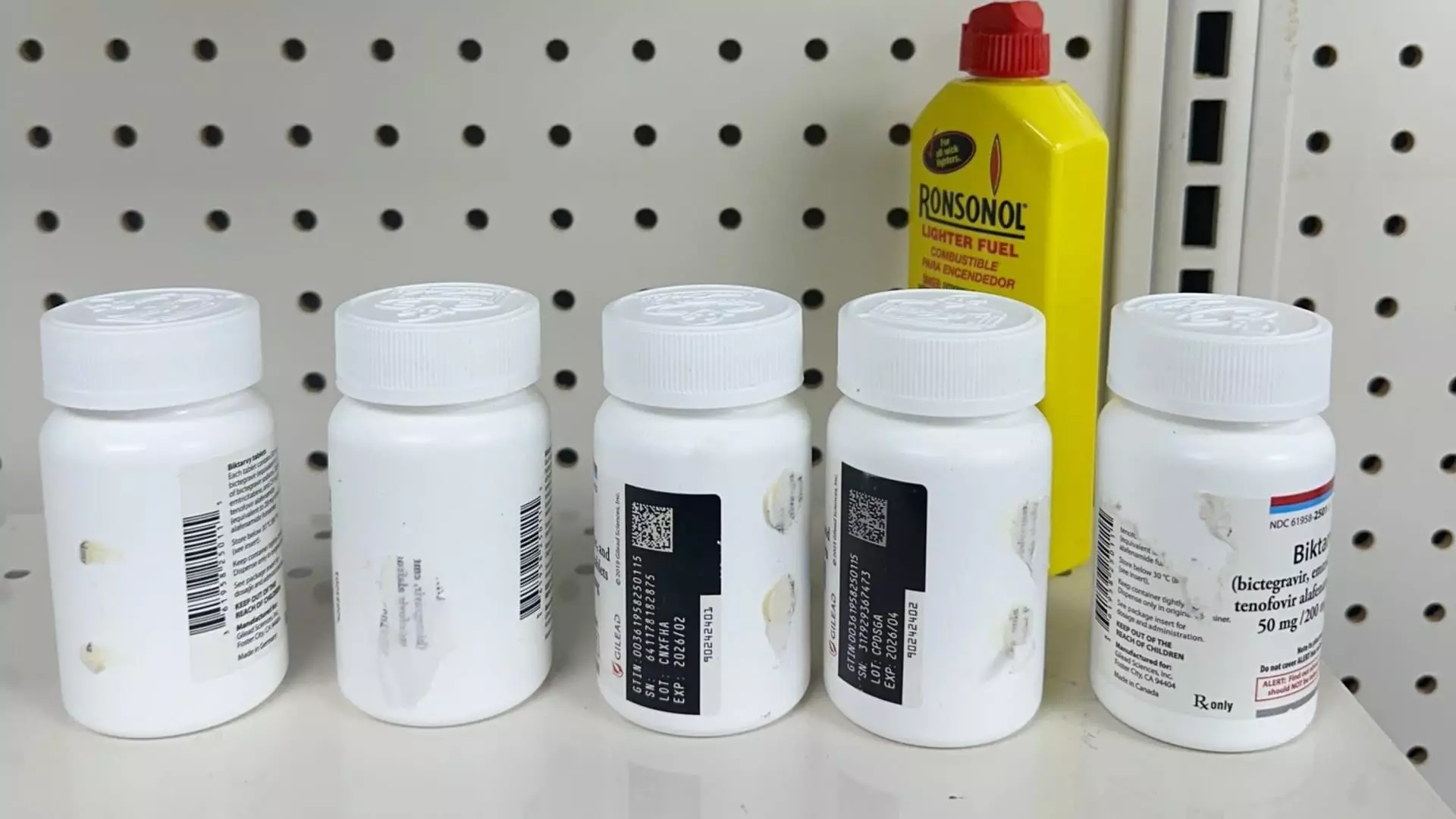The recent revelation by Gilead Sciences regarding a dangerous drug-counterfeiting operation has shed light on the alarming issue of tampering with HIV medications. The scheme, masterminded by Peter Khaim, a twice-convicted medical fraudster, operated out of two New York City pharmacies and involved the improper resale of Gilead medications. This revelation has raised concerns about the safety and authenticity of prescription medications reaching patients.
Gilead Sciences filed a lawsuit against Peter Khaim, along with the pharmacies 71st RX and Best Scripts, linking them to the counterfeiting scheme. The complaint alleged that Khaim controlled the two pharmacies and was involved in manufacturing and trafficking counterfeit Gilead-branded HIV medications. These counterfeit medications were distributed to pharmacies and patients in New York and New Jersey, posing a significant risk to the health and safety of unknowing patients.
The counterfeiters used authentic prescription bottles from Gilead but tampered with the medication and associated documentation. This includes emptying the bottles, refilling them with the wrong medication, and resealing them with different materials than Gilead’s authentic tamper-evident seals. The counterfeit bottles were then sold with fake patient information documents, caps, and pedigrees or invoices.
The majority of the seized counterfeit Gilead HIV medications were Biktarvy and Descovy. This put patients living with HIV at risk, as they may unknowingly receive counterfeit medications instead of their prescribed treatment. Additionally, patients who went to their neighborhood pharmacy for medication were also at risk of being dispensed counterfeit products without their knowledge.
Private investigators, accompanied by deputies from the New York City Sheriff’s Office, conducted seizures at the two pharmacies and Khaim’s home, confiscating over $750,000 worth of suspected counterfeit medication. Despite previous legal action against Khaim for similar offenses and an injunction prohibiting him from selling counterfeit Gilead products, he continued to oversee the counterfeiting operation, as indicated in the latest complaint.
Gilead Sciences emphasized its commitment to putting patient safety first and working with law enforcement agencies to dismantle counterfeiting networks. The company has collaborated with the FDA, OIG, FBI, and prosecutors to deter fraudsters and thwart illegal pharmaceutical distribution. This indicates a concerted effort to address the issue of counterfeit medications circulating in the market.
Last year, a CNBC investigation highlighted the prevalence of counterfeit drugs and Gilead’s efforts to prevent criminals from altering its packaging and medications. Counterfeiters often obtain medications from patients who sell them for cash, remove the labels with lighter fluid, and then reseal the bottles for distribution. In the case involving Khaim, lighter fluid was found at the pharmacies during the seizures, underscoring the illicit nature of the operation.
The uncovering of the dangerous drug-counterfeiting operation orchestrated by Peter Khaim and the subsequent legal action taken by Gilead Sciences raises awareness about the risks associated with counterfeit medications. This case highlights the need for stringent measures to safeguard the integrity of the pharmaceutical supply chain and protect patient safety. Through collaboration with regulatory authorities and law enforcement agencies, pharmaceutical companies can work towards eradicating counterfeit drug networks and ensuring the authenticity of medications reaching patients.

